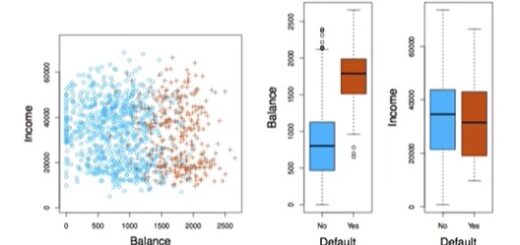Is It Difficult to Learn Data Science
Is It Difficult to Learn Data Science?, If you answered yes, you might be interested in learning whether data science is difficult to learn.
So, if you read the entire blog, you will find the answer.
In addition, at the end of this blog, I will provide you with the best guide to learning Data Science quickly.
Data Science is a relatively new field. It still lacks a solid development foundation and functions more as an umbrella form.
There are numerous challenges in data science. While there is a massive increase in data, there is a scarcity of specialized data scientists who can handle data properly.
This is due to the massive skill gap caused by the significant difficulties that plague the field of data science.
Data Science and Analytics Trends In 2023 » finnstats
Is It Difficult to Learn Data Science?
So, let’s talk about how difficult data science is and some of the issues that data scientists and data science aspirants face.
What makes data science challenges?
Almost everyone nowadays wants to be a Data Scientist without realizing the difficulties that come with learning and implementing data science.
Some of the problems that make Data Science difficult are as follows:
1. Hard Problems
Data Scientists must solve difficult problems. These issues are centered on developing models that address some of the most difficult business problems.
This necessitates a keen sense of problem-solving as well as a high level of mathematical aptitude.
A Data Scientist must identify patterns in data and generate insights by drawing conclusions from the data.
A Data Scientist must have experience solving complex problems. It takes people who are curious enough to persevere through the most difficult problems.
Data Science is a difficult field to enter, especially for those with no prior experience.
Because data science is a relatively new field, finding experienced candidates is one of the most difficult challenges that many businesses face.
Furthermore, the problems that exist in the vast ocean of data science are diverse.
This makes data science an even more difficult challenge for many industries. To develop data science solutions, businesses must first thoroughly understand the problems and then apply an analytical approach to solve them.
Introduction to Hadoop Data Processing Applications » finnstats
2. Large-Scale Data
A Data Scientist’s lifeline is data. However, there is a massive amount of data in the world today. This data is growing at an exponential rate, becoming a burden for data scientists.
A data scientist is required to analyze the given big data and generate insights in order to derive meaningful information from it.
However, many data science professionals find it difficult to manage such large amounts of data.
Do you know that the White House has already spent nearly $200 million on various data projects?
Furthermore, the data is not always organized, that is, it is not always structured in the form of rows and columns. This adds a new challenge to data scientists.
To handle such a large volume of data, a data scientist must be familiar with big data tools such as Hadoop and Spark.
This distributes the knowledge of a data scientist, whose primary responsibility is to analyze data. As a result, it becomes difficult for the data scientist to specialize in multiple roles.
3. Technical Expertise
Data Science has roots in a variety of disciplines. Data science is comprised of several key disciplines, including mathematics, statistics, and programming.
A data scientist must then master several sub-constituents of these disciplines.
While knowledge and expertise in individual fields are relatively easy to come by, mastering all three disciplines can be difficult. Furthermore, becoming an expert in a single field can take many years.
A programmer, for example, spends years mastering his/her domain in order to become proficient. He/she will need to devote nearly as much time and effort to mastering statistics as he/she will to mastering data science.
This is one of the primary reasons why the majority of skilled data science professionals have a Ph.D. in quantitative fields such as finance, natural sciences, and statistics.
Programming is now considered an auxiliary skill that all professionals must learn.
A Ph.D. candidate in biostatistics, for example, must be proficient in a programming language such as R in order to implement statistical models for generating results.
As a result, it is concluded that in order to master data science, you must first master the disciplines that underpin it.
How to Estimate the Efficiency of an Algorithm? » finnstats
4. Domain Knowledge
One cannot become a proficient data scientist solely by completing projects, attending boot camps, and gaining knowledge from various online resources.
While these abilities are required for developing the fundamentals, domain knowledge is what brings data science into the picture.
Experience provides domain knowledge. Transitioning from an engineering or IT professional to a data science role dealing with customer sales forecasting may be difficult.
This is due to the fact that data science necessitates domain knowledge in order to identify useful variables, develop models in the context of business problems, and fine-tune models to eliminate bias that can only be identified through domain knowledge.
Data science is used in a variety of industries. Data science is used in a variety of fields, including health, finance, banking, pharmaceuticals, sales, and manufacturing.
Additionally, data scientists require data in order to create better products for their customers through careful analysis and assertion.
These customers may be end users in a variety of business domains. To achieve better results, a data scientist must have in-depth domain knowledge of the customer.
The Role of Data Science in Preventing Fraud » finnstats
5. Learning Everything at Once
The presence of a sea of knowledge can often be intimidating for startups venturing into the field of data science.
Data Science is a math-heavy field, and many data science aspirants would like to have a firm grasp on the fundamental mathematical concepts before diving into the field. This approach, however, is incorrect.
Data Science is a useful field. It necessitates the practical application of several underlying topics.
The concepts used in data science are also highly ephemeral. This means that if you only learn the theory and do not put it into practice, you will quickly forget it.
As a result, Data Science is practice-intensive and requires the right approach
Conclusion
Finally, we conclude that data science is a highly difficult field with a steep learning curve. This is one of the primary reasons for the scarcity of professional data scientists.
Machine Learning Impact on your day-to-day life! » finnstats



